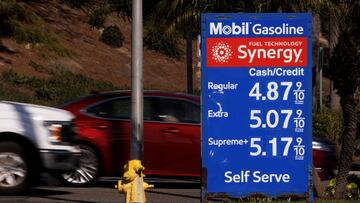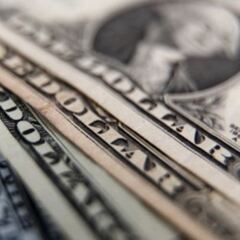How does raising interest rates help inflation in the US?
Various forms of financial relief provided a short-term boost for the United States' economy but there may now be a need to rein in soaring inflation rates.


The United States’ economic recovery is continuing but there is growing concern that a prolonged period of high inflation rates could topple the progress that has been made over the past 12 months.
During the first year of the pandemic the federal government issued various forms of financial support for individuals and businesses, with stimulus checks, additional unemployment benefits and favourable business loans. Those efforts likely saved millions from financial ruin, but the influx of cash has sent inflation rates soaring.
Jerome Powell, chair of the Federal Reserve, has told lawmakers that the central bank is becoming increasingly concerned with the high rate of inflation and warned that it may soon be forced to raise interest rates to combat it.
He said: “If we see inflation persisting at high levels longer than expected, if we have to raise interest rates more over time, we will.”
The United States is seeing the highest inflation in nearly 40 years and the squeeze is being felt by small businesses, who are caught between rising costs and potentially putting off customers https://t.co/alAWq802yx pic.twitter.com/dyxcuddaly
— Reuters (@Reuters) January 13, 2022
Why would increasing interest rates lower inflation?
In general interest rates and inflation are inversely related, with an increase to one usually bringing about a decrease in the other. This allows central banks to manipulate inflation levels by altering short-term interest rates.
Underpinning this basic principle is the notion that reducing interest rates allows people to borrow more money. This, in turn, gives them more money to spend, leads to greater economic speculation, and so prompts the economy to grow and inflation to increase.
Accordingly the same principle ensures that rising interest rates encourage people to save, because their savings will accrue a higher rate of interest. If less money is spent than the economy slows and inflation will decrease.
In the US the Federal Reserve is able to set the federal funds rate, upon which many banks base their own interest rates to pass on to borrowers. The Fed is able to quicken or slow the national economy by altering their own rates and encouraging or discouraging spending.
Today’s inflation numbers show a meaningful reduction in headline inflation over last month. We are making progress in slowing the rate of price increases. But there is still more work to do — I remain focused on lowering costs for families and maintaining strong economic growth.
— President Biden (@POTUS) January 12, 2022
United States hits highest inflation rate in 40 years
In December 2021 the US inflation rate hit 7%, the highest figure since the Reagan presidency, the seventh consecutive month of above-5% inflation. President Biden has been under pressure to bring the 40-year inflation high under control, for fear that soaring prices will hit low-income individuals already struggling to cope with the pandemic.
Related stories
On Tuesday White House press secretary Jen Psaki confirmed that the administration had been expected, but that the month-on-month inflation rate is projected to be more moderate in the coming months. However she spoke of the need to pass the remainder of Biden’s legislative agenda, the Build Back Better bill, to combat the risk of price rises.
“We continue to press for steps in working with Congress to … lower costs for the American people,” she said. “That’s why we want to get Build Back Better done.”

